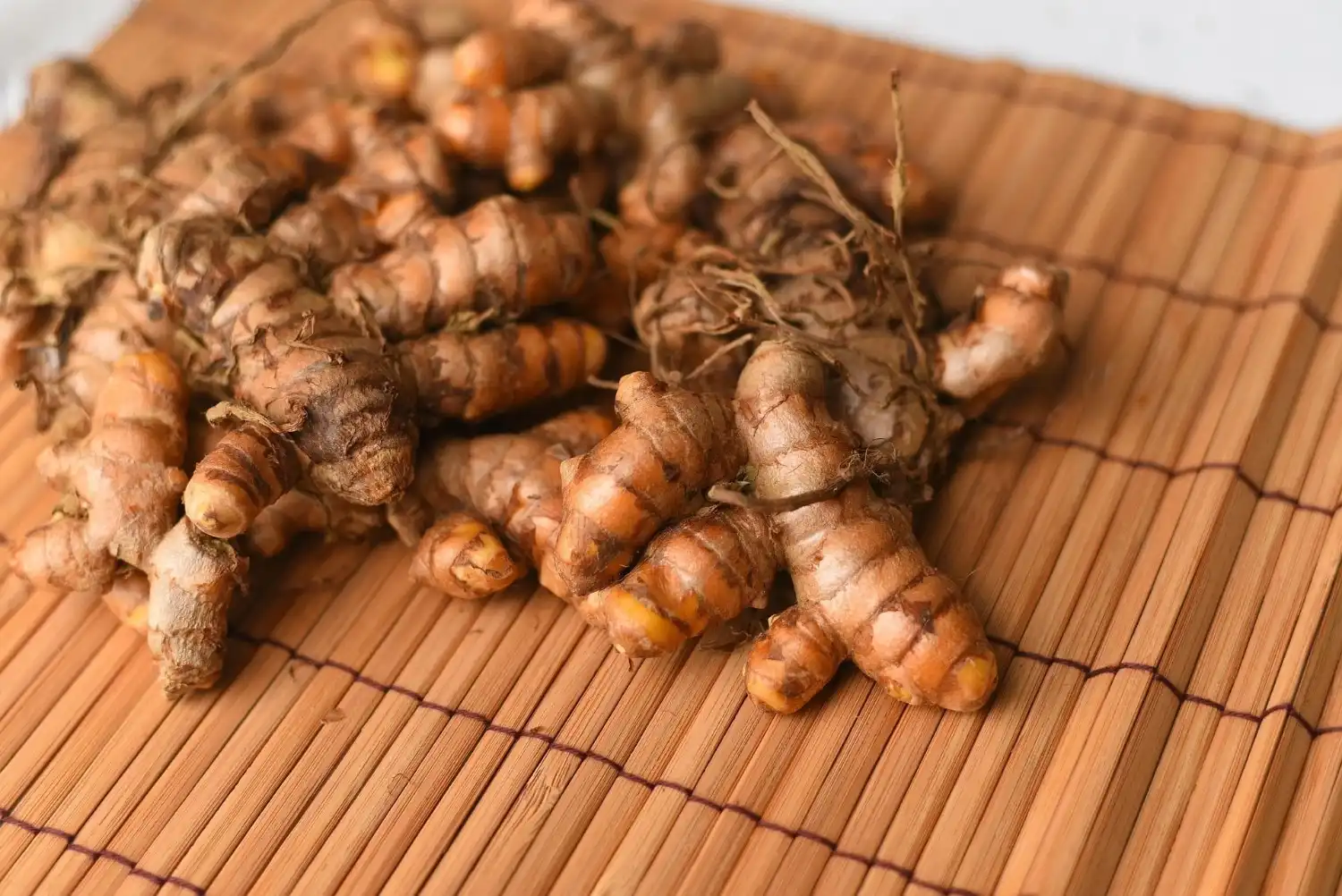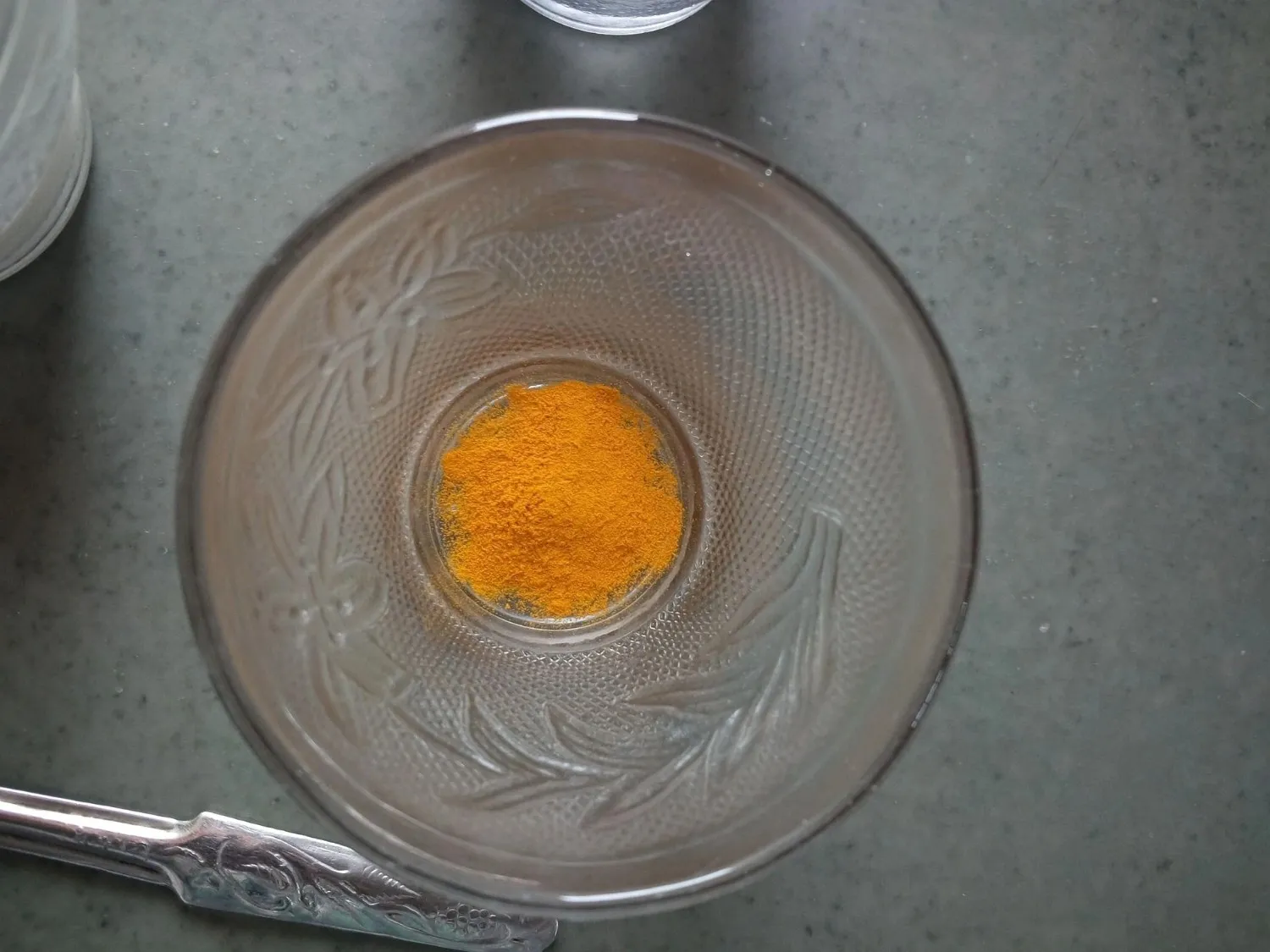Table of Contents
Turmeric vs curcumin is a common comparison because turmeric is the spice, while curcumin is its main active compound.
Turmeric contains only about 2–9% curcumin, but curcumin supplements deliver concentrated doses studied for anti-inflammatory and antioxidant benefits.
Knowing the difference helps you choose the right option for cooking, wellness, or supplementation.
Key Summary:
-
Turmeric is the whole root and spice, while curcumin is its most active compound.
-
Turmeric contains only 2–9% curcumin, so supplements provide much higher doses.
-
Both have anti-inflammatory and antioxidant benefits, but curcumin is more concentrated and well-studied.
-
Turmeric works well for everyday use in food, while curcumin supplements are better for targeted health support.
What is Turmeric?
 Turmeric is a yellow spice from the root of the Curcuma longa plant, often used in cooking and traditional medicine. It contains over 200 compounds, including curcuminoids like curcumin, which provide many of its health effects.
Turmeric is a yellow spice from the root of the Curcuma longa plant, often used in cooking and traditional medicine. It contains over 200 compounds, including curcuminoids like curcumin, which provide many of its health effects.
Beyond its bright color and flavor, turmeric has been used in Ayurveda and Chinese medicine for centuries to support digestion, joint comfort, and immune health.
Fresh turmeric root looks similar to ginger, while the dried version is ground into powder commonly used in curries, teas, and golden milk.
What is Curcumin?
-v1756954470478.webp) Curcumin is the most active compound in turmeric, making up only 2–9% of the root. It is extracted and sold as a supplement, typically in doses of 500–3,000 mg, where it shows stronger anti-inflammatory and antioxidant effects than turmeric alone.
Curcumin is the most active compound in turmeric, making up only 2–9% of the root. It is extracted and sold as a supplement, typically in doses of 500–3,000 mg, where it shows stronger anti-inflammatory and antioxidant effects than turmeric alone.
Because curcumin is poorly absorbed on its own, supplements often combine it with black pepper extract (piperine) or healthy fats to improve absorption.
Research has focused heavily on curcumin for conditions like arthritis, diabetes, and metabolic syndrome, making it one of the most studied natural compounds today (1).
What is the Difference Between Turmeric and Curcumin?
The key difference is that turmeric is the whole spice containing many compounds, while curcumin is just one concentrated compound extracted from turmeric. Turmeric can be eaten fresh, dried, or as a powder, while curcumin is mainly available as a supplement.
Composition
Turmeric is a mix of many natural compounds, including curcuminoids, volatile oils, and antioxidants. Curcumin is just one of these compounds but is considered the most active.
Potency and Research
Most clinical studies focus on curcumin supplements because they deliver higher doses than turmeric as food.
While turmeric may offer broader effects from its mix of compounds, curcumin is more potent for targeted results.
Absorption and Bioavailability
Curcumin alone is poorly absorbed in the body. Pairing it with piperine (black pepper extract) or fats can increase absorption dramatically.
Turmeric as a whole food may sometimes absorb better due to natural synergy between its compounds, but it requires large amounts to match supplement doses.
Everyday Use
Turmeric is easy to add to meals, teas, or wellness drinks, making it a good choice for general support. Curcumin is better suited for people seeking higher, research-backed doses for specific conditions like joint pain or metabolic health.
Turmeric vs Curcumin: Health Benefits Compared
-v1756954740950.webp) Both turmeric and curcumin have anti-inflammatory and antioxidant effects, but research shows curcumin supplements deliver stronger, more concentrated benefits. Turmeric, on the other hand, may offer broader effects thanks to its many natural compounds working together.
Both turmeric and curcumin have anti-inflammatory and antioxidant effects, but research shows curcumin supplements deliver stronger, more concentrated benefits. Turmeric, on the other hand, may offer broader effects thanks to its many natural compounds working together.
Shared Benefits of Turmeric and Curcumin
Both turmeric and curcumin may reduce inflammation, support joint health, improve blood sugar control, and protect the heart, with studies showing overlapping health effects.
While turmeric contains many compounds and curcumin is a single extract, they share several well-documented benefits:
May reduce joint pain and stiffness in people with arthritis.
Help lower “bad” LDL cholesterol and triglycerides.
Support healthy blood sugar metabolism in type 2 diabetes.
Provide strong antioxidant activity that protects cells from oxidative stress.
Show antibacterial, antifungal, and anticancer potential in early studies.
Benefits More Linked to Turmeric
Turmeric may offer unique benefits beyond curcumin, as its combination of compounds appears to enhance antifungal, antimicrobial, and brain-protective effects.
This is because turmeric is more than just curcumin; it carries hundreds of bioactive compounds that may work together:
Turmeric compounds, including curdione, may act synergistically against fungal growth (2).
Whole turmeric has shown stronger tumor-suppressing activity than curcumin alone in some studies.
May help protect brain health and reduce age-related cognitive decline (3).
Traditional medicine uses turmeric for digestion, skin health, and wound healing.
Benefits More Linked to Curcumin
Curcumin supplements are more strongly linked to clinical improvements in arthritis, metabolic health, and inflammatory conditions due to higher doses used in studies.
Because curcumin is the most concentrated active compound, researchers often study it in isolation:
Strong evidence for reducing arthritis pain and inflammation.
May lower inflammatory markers like TNF and IL-6 in type 2 diabetes.
Shown to reduce oxidative stress and support liver health in animal studies.
Studied for osteoporosis prevention due to its impact on bone mass in research models.
High-dose trials (500–3,000 mg daily) show safety and measurable benefits for chronic conditions.
Which Is Better Absorbed?
Curcumin on its own is poorly absorbed, which is why supplements often include black pepper extract (piperine) or healthy fats to improve bioavailability. Turmeric as a whole food may sometimes absorb better because its natural compounds work together.
In practice, curcumin supplements are designed with absorption enhancers, making them more effective at delivering high doses.
Eating turmeric with black pepper or oils also helps, but you would need very large amounts of turmeric to match supplement doses used in studies.
Dosage and How to Take
 Most studies use 500–3,000 mg of curcumin per day, usually in divided doses. Turmeric as a spice contains only 2–9% curcumin, so it’s difficult to reach therapeutic levels through diet alone.
Most studies use 500–3,000 mg of curcumin per day, usually in divided doses. Turmeric as a spice contains only 2–9% curcumin, so it’s difficult to reach therapeutic levels through diet alone.
For everyday use, you can add fresh or powdered turmeric to meals, teas, or golden milk. Pairing it with black pepper and fat (like coconut oil or milk) helps your body absorb curcumin better.
If you’re considering a supplement, choose one that has been clinically tested and formulated with piperine or lipid carriers to improve absorption.
Always check with a healthcare provider before starting high-dose turmeric or curcumin, especially if you take medications like blood thinners.
Are There Any Risks?
Turmeric and curcumin are generally safe in moderate amounts, but high doses may cause digestive upset and interact with medications like blood thinners.
While many people tolerate turmeric and curcumin well, some side effects can appear with larger doses or prolonged use:
Nausea or stomach upset
Diarrhea or loose stools
Headache
Rash or skin irritation
Risk of liver issues with very high intake
Possible interactions with blood thinners, diabetes medication, or acid-reducing drugs
It’s best to consult a healthcare provider before starting supplements, especially if you have ongoing medical conditions.
Turmeric vs Curcumin: Which Should You Choose?
Choose turmeric if you want a natural spice for everyday wellness, but curcumin supplements are better if you need targeted, research-backed doses for conditions like arthritis or diabetes.
If your goal is general wellness and you enjoy cooking, turmeric can be a flavorful way to add natural support to your diet. Its mix of compounds provides broad benefits, though you’ll only get a small amount of curcumin.
On the other hand, curcumin supplements are concentrated and more effective for people looking for measurable benefits in specific health conditions.
They’re often combined with piperine or fats to improve absorption, making them a more reliable choice when higher doses are needed.
In some cases, using both together makes sense: turmeric in meals for everyday support and curcumin supplements when you want a therapeutic effect.
Final Words
Turmeric and curcumin are closely related but not the same. Turmeric is the golden spice with many natural compounds, while curcumin is its most active ingredient studied for powerful anti-inflammatory and antioxidant effects.
Turmeric offers gentle, whole-food benefits, while curcumin supplements provide targeted support at higher doses. Both can play a role in your health, depending on your needs.
Just remember to pair them with black pepper or fats for better absorption and check with a healthcare professional if you’re considering high-dose supplements.



